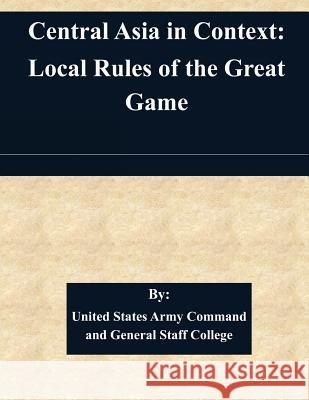Central Asia in Context: Local Rules of the Great Game » książka
Central Asia in Context: Local Rules of the Great Game
ISBN-13: 9781511452946 / Angielski / Miękka / 2015 / 56 str.
The Central Asian States balance influences from Russia, China, and the United States, as well as those of other Central Asian actors. This monograph analyzes, through qualitative research, how these governments' actions in their own self-interest affect United States' theater security cooperation. Three case studies look at (1) Kazakhstan's security engagements with other Central Asian nations, as well as Russia, China, and the United States; (2) Kazakhstan's energy involvement with these nations; and (3) United States' basing involvement in Uzbekistan and Kyrgyzstan. The case studies highlight that the Central Asian governments are primarily realist, and act for regime preservation according to Balance of Threat theory. This constrains the actions of the United States and its operational planners, who must accomplish United States' goals without Central Asia balancing against these efforts. As a result, the United States should maintain a minimal presence in the region to facilitate future operations if regional security deteriorates. Neither increased efforts nor complete disengagement will further United States' interests in the region.
Zawartość książki może nie spełniać oczekiwań – reklamacje nie obejmują treści, która mogła nie być redakcyjnie ani merytorycznie opracowana.











